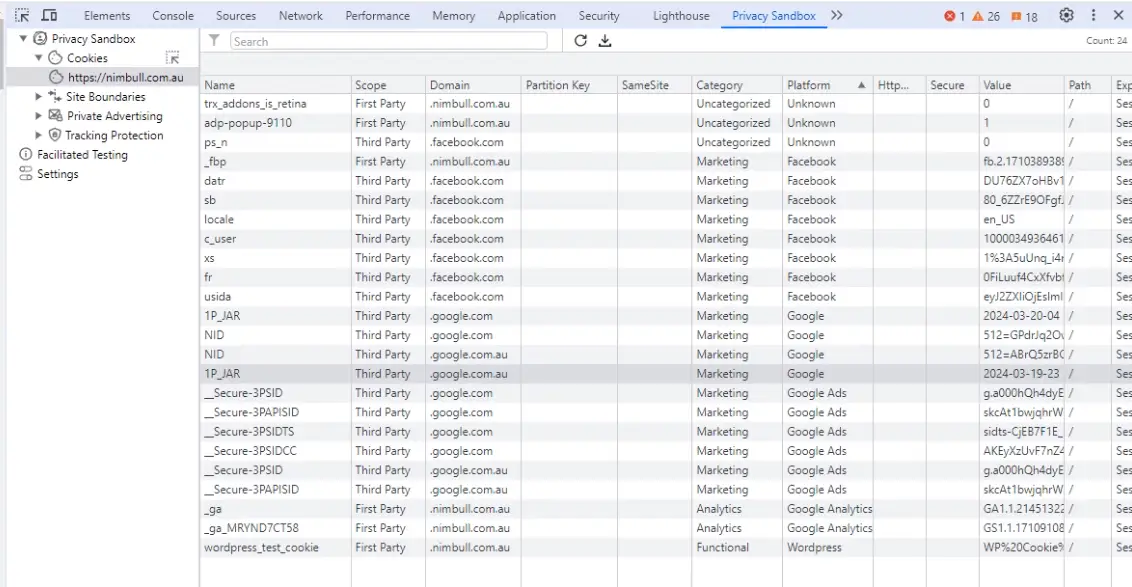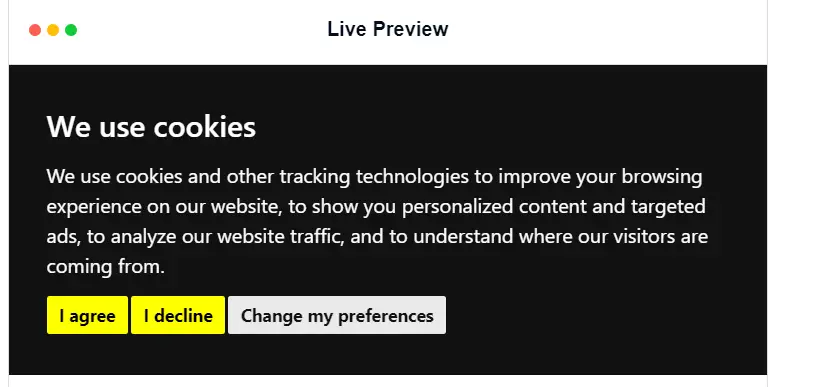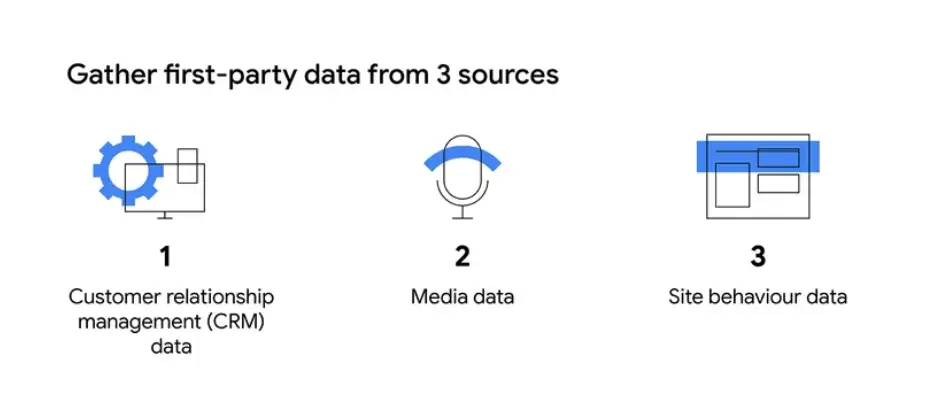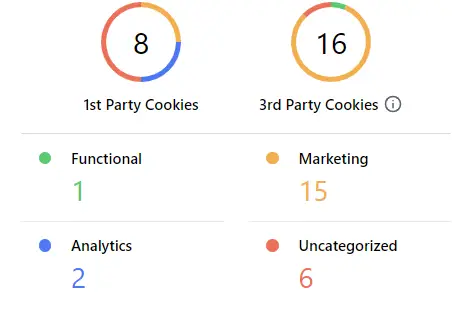In the digital era, Google’s announcement to phase out third-party cookies in Chrome by late 2024 has created a stir across the online landscape. This significant move is part of Google’s broader initiative to enhance user privacy through its Tracking Protection feature. This blog post explores the implications of this change for users and businesses across various sectors, offering insights on how to adapt effectively.
The Dawn of a New Privacy Era
Google Chrome, a leader in the web browser market, is poised to revolutionise user privacy with its new Tracking Protection feature. Starting January 4, Chrome will begin to limit cross-site tracking by restricting access to third-party cookies by default. This experiment, affecting 1% of Chrome users globally, is a critical step in the Privacy Sandbox initiative, which aims to completely eliminate third-party cookies by the second half of 2024, pending regulatory approval.
For nearly three decades, third-party cookies have played a key role in tracking website activities, enabling online logins, and delivering targeted advertising. However, with the Privacy Sandbox initiative, Chrome is paving the way for new tools that allow websites to transition smoothly to a cookie-less future, ensuring users enjoy uninterrupted and privacy-respecting online experiences.

Enhancing User Experience and Control
Chrome’s focus extends beyond privacy enhancement to maintaining a balanced web ecosystem. If users encounter issues on sites that require third-party cookies, Chrome offers a temporary solution. By clicking an eye icon in the address bar, users can re-enable third-party cookies for specific sites, preserving their online activities without disruption.
The Impact on Businesses and Web Content
Google’s efforts ensure that businesses can continue to thrive online without compromising privacy. The introduction of new tools is designed to assist businesses in adapting to these changes while continuing to deliver high-quality web content, including news, educational materials, and community resources.
Navigating the Change with Google Analytics 4
Protected Audience API
For businesses, transitioning away from third-party cookies doesn’t mean the end of personalised promotions. The Protected Audience API in Google Analytics 4 allows businesses to remarket to past website visitors with offers and updates, leveraging browser-stored interest groups and on-device ad selection to maintain user privacy.
Enhanced Conversions
The Enhanced Conversions feature improves the accuracy of conversion tracking. By capturing and hashing customer data during web conversions, businesses can better track performance metrics and optimise their advertising strategies for maximum return on investment.
Consent is Key
In alignment with Google’s updated consent policies, it is crucial for businesses, especially within the EEA, to implement robust consent mechanisms. This is essential for legal compliance and building trust with consumers.
Leveraging AI for Durable Ad Performance
AI Essentials offer a way forward for sustaining effective marketing strategies in a post-cookie world. Businesses are encouraged to utilise AI-powered tools to optimize ad campaigns, ensuring long-term success.
Preparing for the Phase-Out
The upcoming phase-out of third-party cookies requires a proactive approach from businesses. Auditing and updating web code for cookie compliance, along with engaging with Privacy Sandbox APIs, will be essential in navigating this transition smoothly, ensuring privacy-centric advertising practices remain intact.
The phase-out of third-party cookies by Google by late 2024 is a significant change in the digital marketing landscape, but it doesn’t necessitate alarm among businesses or clients. Our agency will assist clients in transitioning their digital strategies away from reliance on third-party cookies, this represents an opportunity to embrace more privacy-focused advertising and analytics practices. By taking proactive steps – such as updating strategies, leveraging new technologies, and adhering to Google’s guidance – businesses can navigate this shift smoothly. It’s an invitation for adaptation and innovation rather than a reason for concern.
To prepare for Google’s late 2024 cookie phase-out, clients should focus on adapting their digital strategies to ensure compliance and maintain effectiveness in marketing and analytics. Key steps include:
1) Audit Web Assets: Review and update your website’s tracking technologies for cookie compliance.
Nimbull Website – 1st Party and 3rd Party Cookies:

Privacy Sandbox Analysis Tool – Chrome Extension


2) Embrace First-Party Data: Shift towards collecting first-party data directly from customers with their consent.

Almost all websites use cookies. For example, if your website requires a login, offers shopping services, or personalised the user’s experience, it likely uses cookies.

3) Utilise Privacy Sandbox APIs: Engage with Google’s Privacy Sandbox initiatives to explore new privacy-centric advertising methods.
- Strengthen cross-site privacy boundaries. Show relevant content and ads. Measure digital ads. Prevent covert tracking. Fight spam and fraud on the web.
- Engage and share feedback.
The Privacy Sandbox provides a range of purpose-built APIs for specific use cases without a need for third-party cookies:
- Federated Credential Management (FedCM) enables federated identity services allowing users to sign in to sites and services.
- Private State Tokens enable anti-fraud and anti-spam by exchanging limited, non-identifying information across sites.
- Topics enables interest-based advertising and content personalisation.
- Protected Audience enables remarketing and custom audiences.
- Attribution Reporting enables measurement of ad impressions and conversions.
Many of these initiatives above are designed for the ADTECH providers, and may not need specific action by the average site owner. Many are still being finalised, and should be observed over all of 2024.

The Nimbull website captures both First Party and Third Party Cookies in GA4
4) Adopt New Analytics Tools: Transition to Google Analytics 4 and leverage features like the Protected Audience API and Enhanced Conversions for insight without invading privacy.
Following these steps will help navigate the transition smoothly, aligning with privacy advancements and maintaining a strong digital presence.
There are ways to create new privacy policy for this cookie privacy compliance
Free Cookie Policy Generator for any website:
https://www.cookieyes.com/privacy-policy-generator
https://www.cookieyes.com/free-cookie-policy-generator

5) Strengthen Consent Mechanisms: Ensure your website’s consent management practices are robust and in line with updated privacy regulations.
Following these steps will help navigate the transition smoothly, aligning with privacy advancements and maintaining a strong digital presence.

